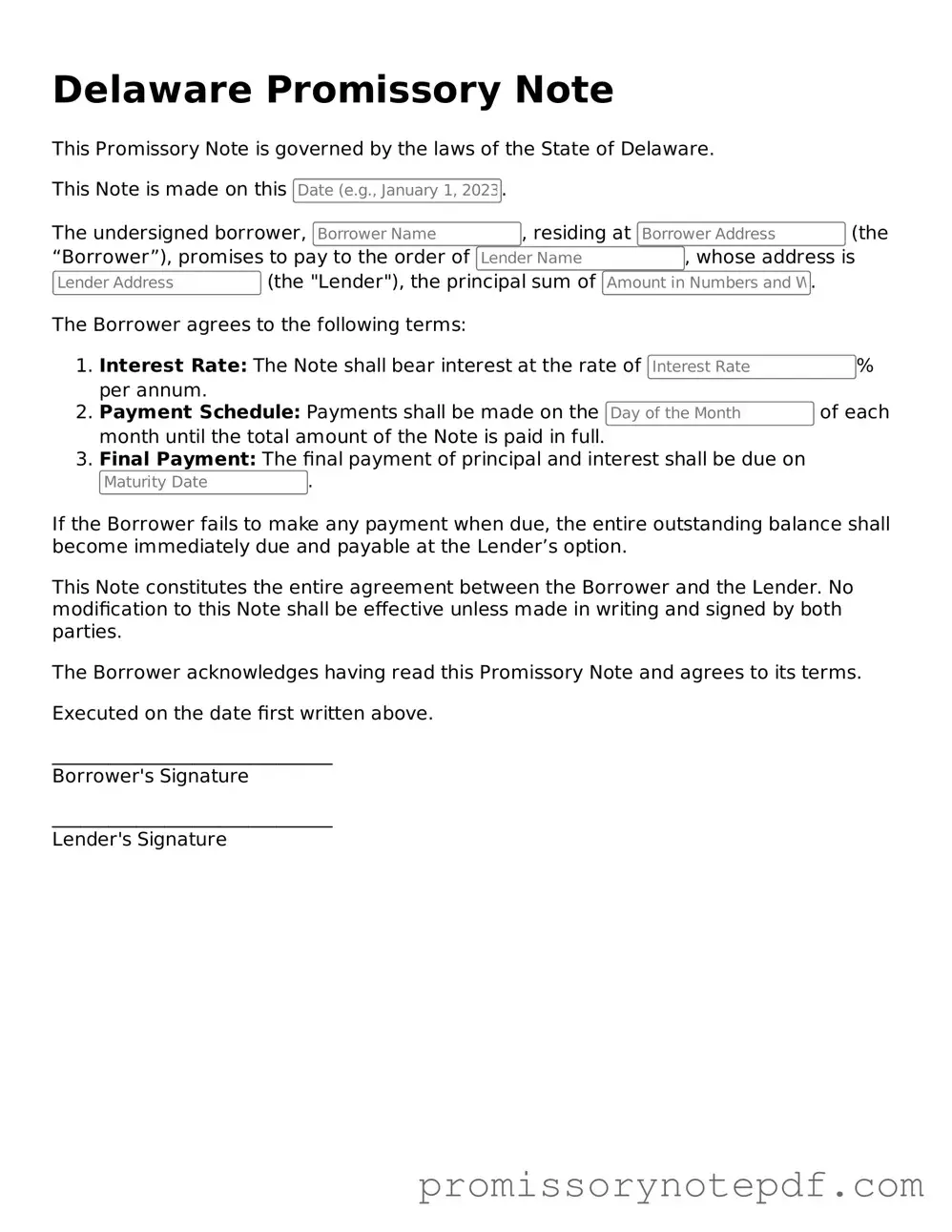Similar forms
The Delaware Promissory Note is similar to a loan agreement. Both documents outline the terms under which money is borrowed and specify the obligations of the borrower. A loan agreement typically includes details such as the loan amount, interest rate, repayment schedule, and any collateral involved. Like a promissory note, a loan agreement serves as a legally binding contract, ensuring that both parties understand their responsibilities. However, loan agreements tend to be more comprehensive, often covering additional terms and conditions that may not be included in a simple promissory note.
Another document that shares similarities with the Delaware Promissory Note is a personal guarantee. A personal guarantee is a commitment made by an individual to repay a debt if the primary borrower defaults. This document often accompanies a promissory note, especially in business transactions where the lender seeks additional assurance of repayment. Both documents create a legal obligation, but a personal guarantee specifically ties the individual’s personal assets to the debt, providing the lender with an extra layer of security.
A third document that resembles the Delaware Promissory Note is a mortgage agreement. While a promissory note outlines the borrower's promise to repay a loan, a mortgage agreement secures that promise with real property. In essence, the mortgage agreement gives the lender the right to take possession of the property if the borrower fails to meet their repayment obligations. Both documents work together in real estate transactions, with the promissory note detailing the loan terms and the mortgage agreement providing collateral for the loan.
Additionally, a security agreement is similar to a promissory note in that it establishes a lender's rights to specific collateral in the event of default. This document details the assets that the borrower pledges to secure the loan. While a promissory note focuses on the borrower's promise to repay, a security agreement provides the lender with a legal claim to the collateral. This can be crucial for lenders, as it offers a way to recover funds if the borrower does not fulfill their obligations.
Lastly, a debt acknowledgment is another document that bears resemblance to the Delaware Promissory Note. A debt acknowledgment is a simple statement in which a borrower confirms the existence of a debt and their commitment to repay it. While it may not include detailed repayment terms or interest rates, it serves as an acknowledgment of the borrower's obligation. Like a promissory note, it is a legal document that can be used in court to establish the existence of a debt and the borrower's responsibility to repay it.
